Cranial Nerves Mnemonic
Oh Oh Oh To Touch And Feel Very Good Victory AH!
Olfactory
Optic
Oculomotor
Trochlear
Trigeminal
Abducens
Facial
Vestibulocochlear
Glossopharyngeal
Vagus
Accesory
Hypoglossal
Here are 12 cranial nerves mnemonics to assist you with understanding the cranial nerves.
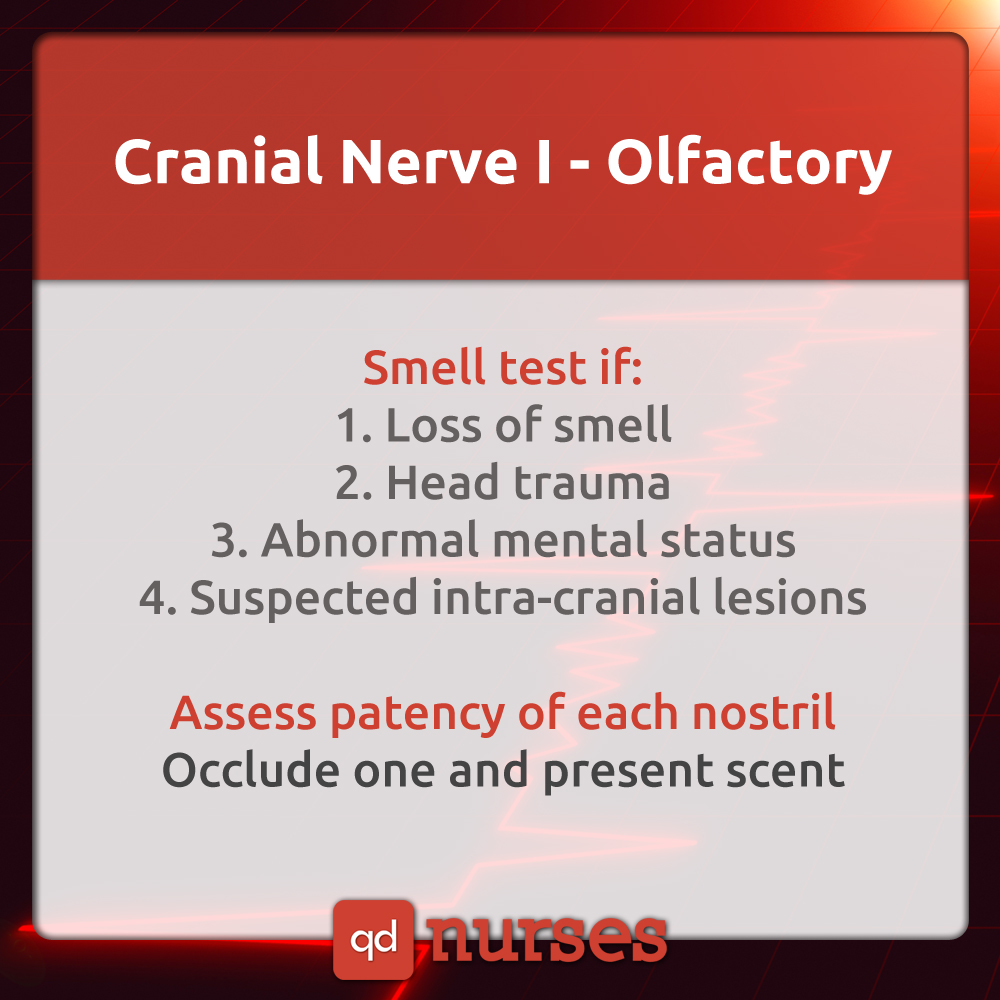
Cranial Nerve 1 – Olfactory
Smell test is done if client reports loss of smell, head trauma, abnormal mental status, and suspected intra-cranial lesions.
Assess patency of each nostril by occluding one nostril. Positive results are presented if the client can still smell out of one nostril.
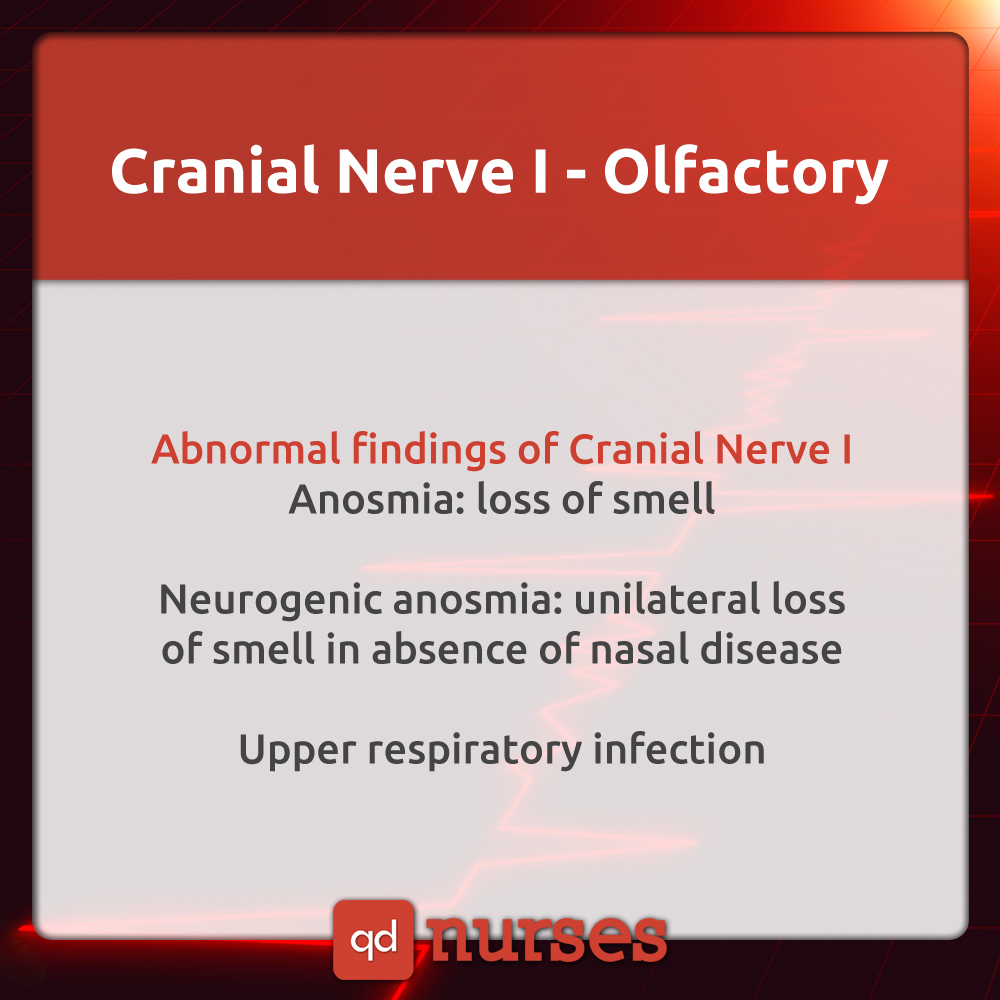
Cranial Nerve 1 – Olfactory
Abnormal findings of cranial nerve I is anosmia. Anosmia is loss of smell.
Neurogenic anosmia is unilateral loss of smell in the absence of nasal disease. Upper respiratory infection could be the cause.
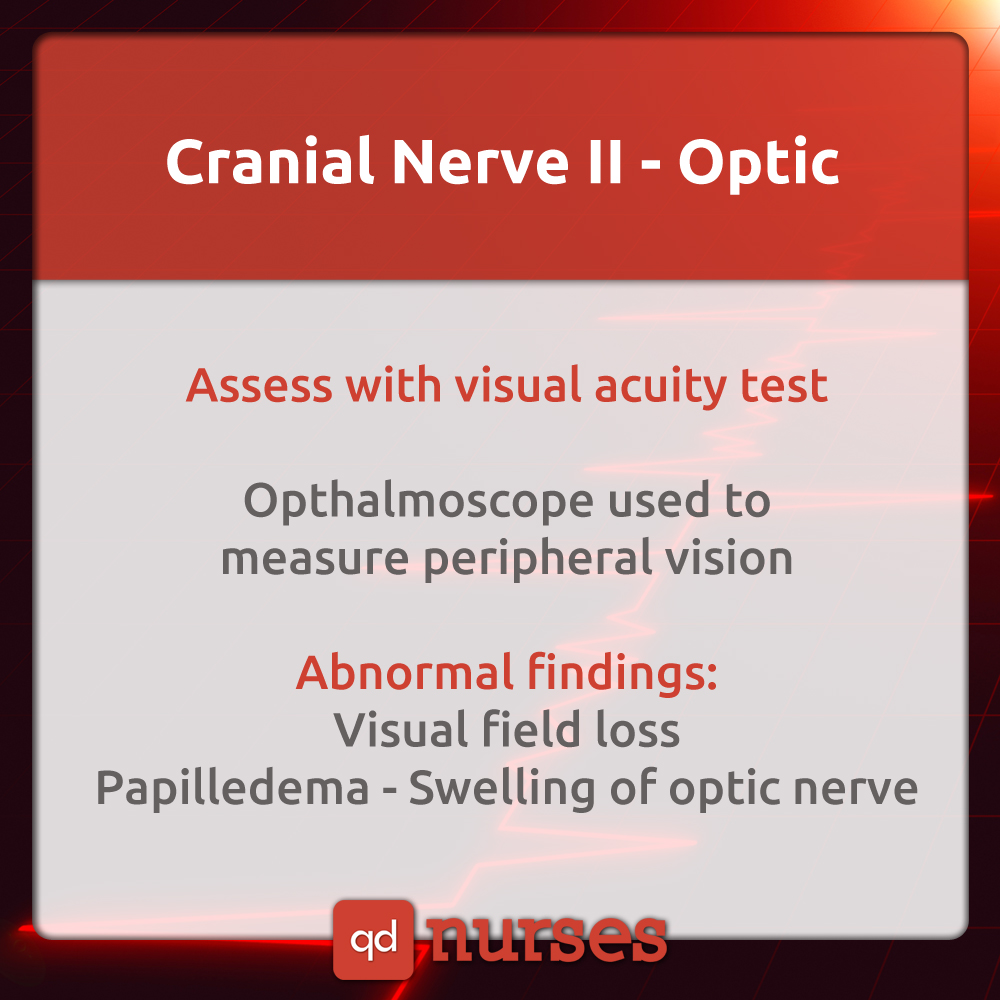
Cranial Nerve II – Optic
Ophthalmoscope is used to measure peripheral vision.
Abnormal findings of the optic cranial nerve includes visual field loss and papilledema. Papilledema is swelling of the optic nerve.
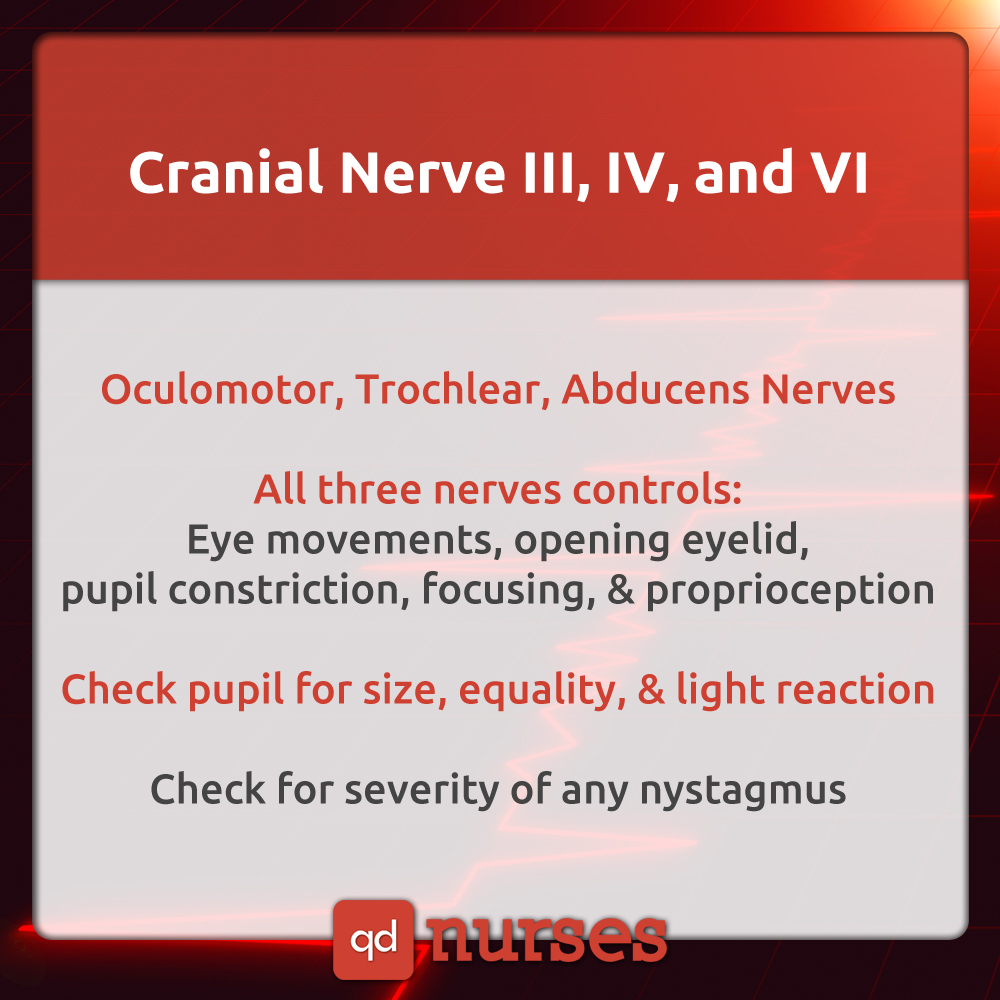
Cranial Nerve III – Oculomotor, Cranial Nerve IV – Trochlear, and Cranial Nerve VI – Abduces Nerve
All three nerves control eye movements, opening eyelid, pupil constriction, focusing, and proprioception.
Check pupil for size, equality and light reaction.
Check for severity of any nystagmus.
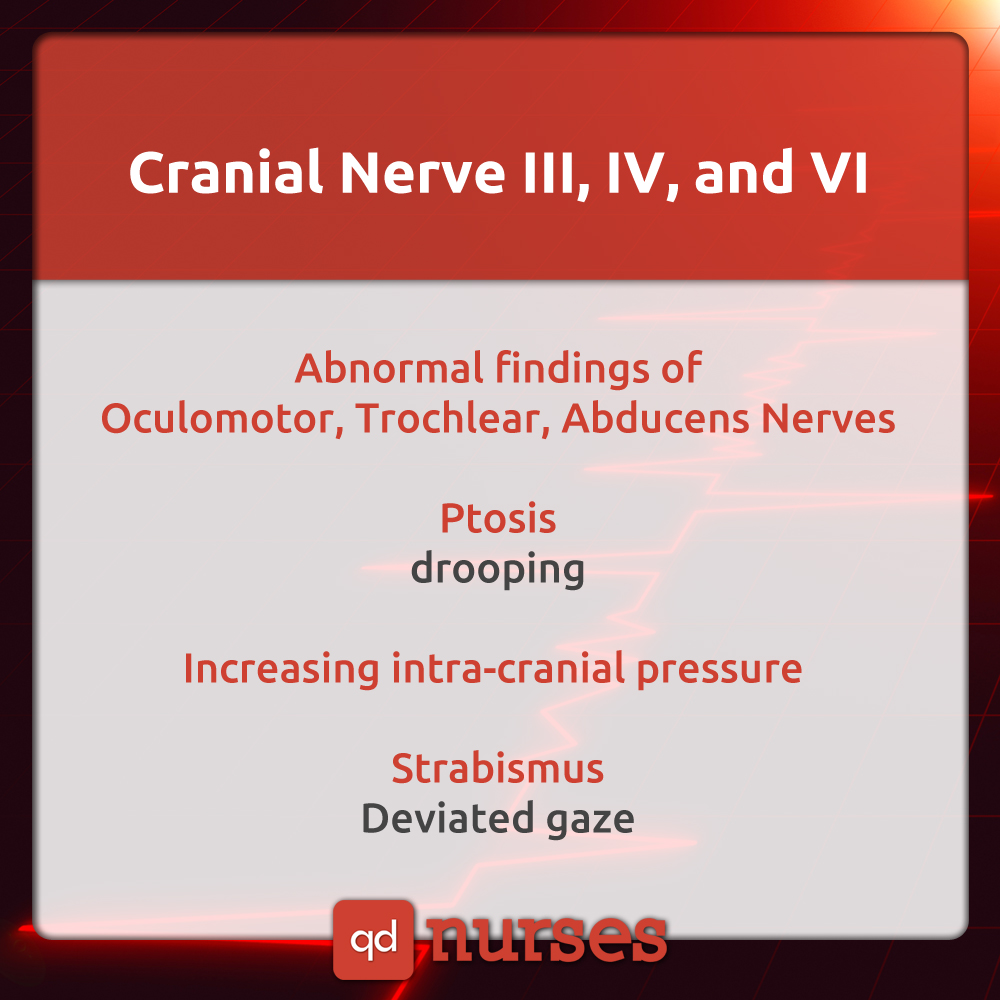
Cranial Nerve III – Oculomotor, Cranial Nerve IV – Trochlear, and Cranial Nerve VI – Abduces Nerve
Abnormal findings of the oculomotor, trochlear, and abducens nerves are:
- Ptosis, also known as dropping
- Increasing intra-cranial pressure
- Strabismus, also known as deviated gaze
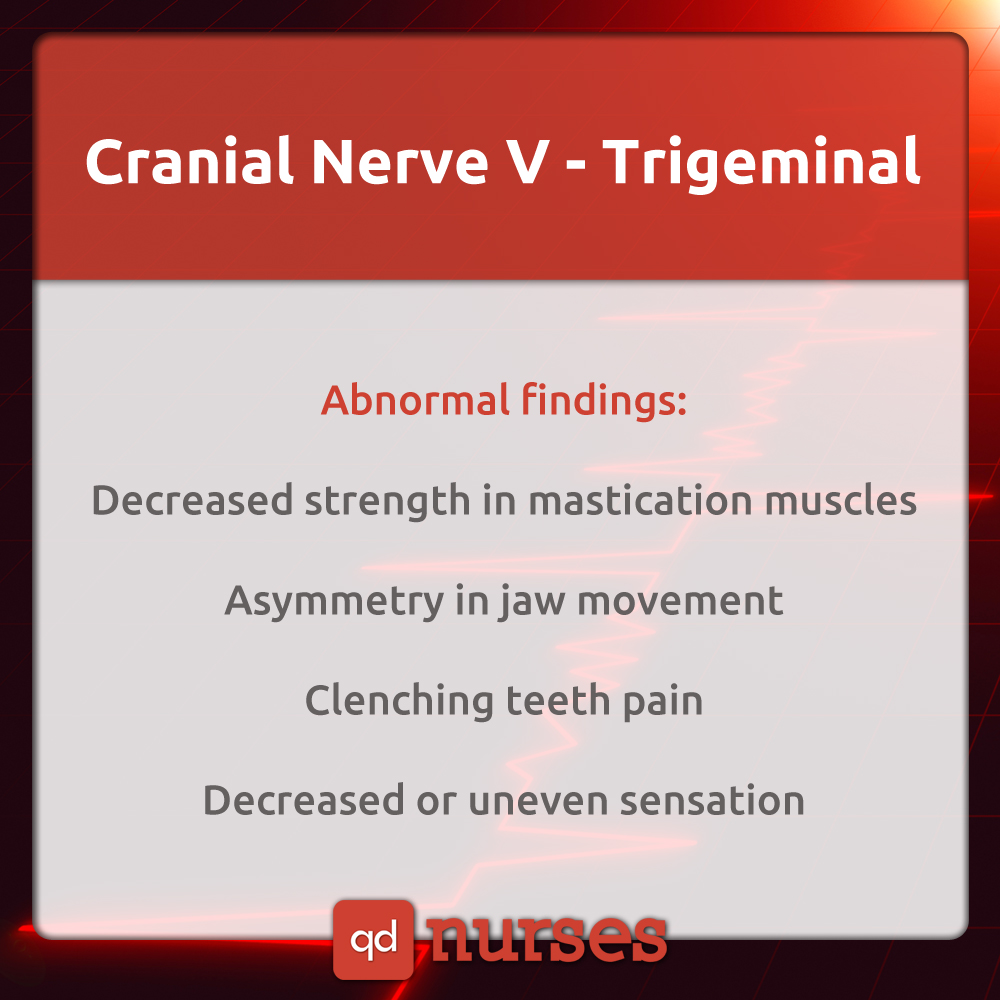
Cranial Nerve V – Trigeminal
Abnormal findings of the cranial nerve trigeminal include:
- Decreased strength in mastication muscles
- Asymmetry in jaw movement
- Clenching teeth pain
- Decreased or uneven sensation
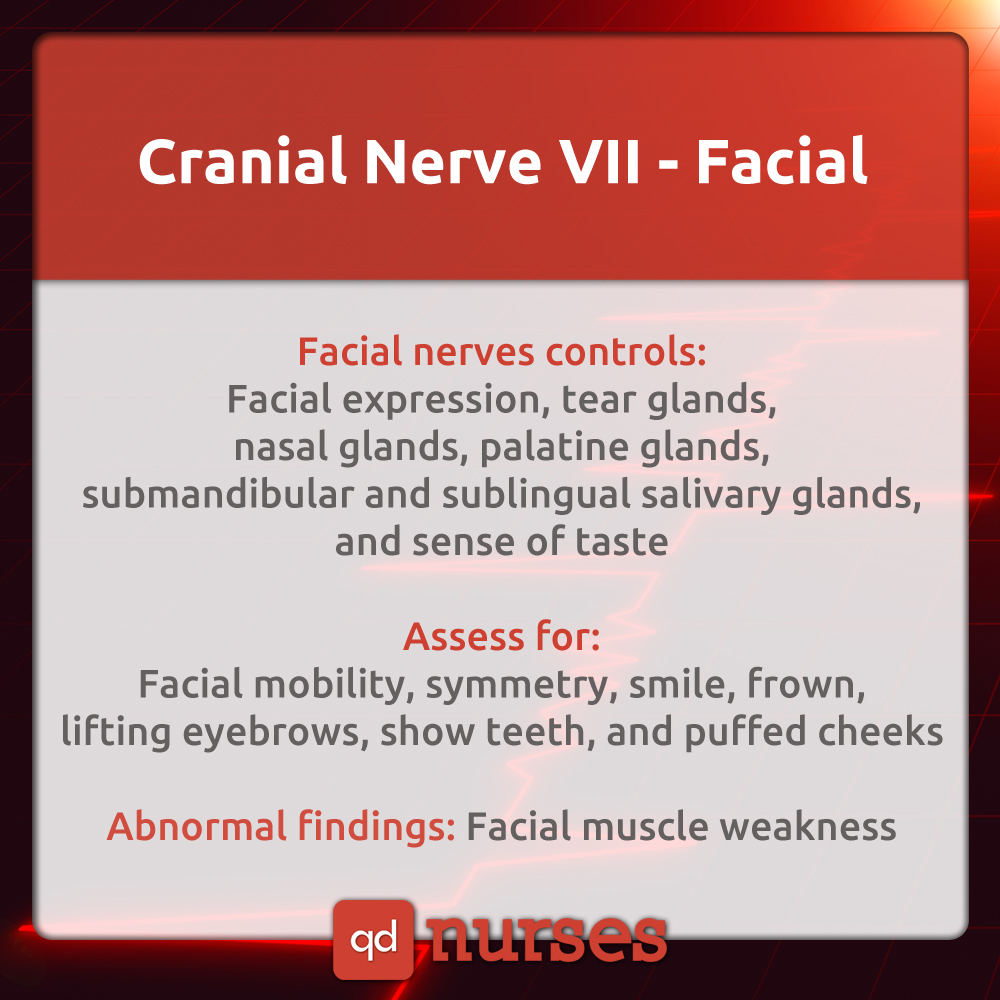
Cranial Nerve VII – Facial
Facial nerve controls:
Facial expression
Tear glands
Nasal glands
Palatine glands
Submandibular and sublingual salivary glands
Sense of taste
Assess for:
Facial mobility
Symmetry
Smile/frown
Lifting eyebrows
Show teeth
Puffed cheeks
Abnormal findings of the facial cranial nerve – facial muscle weakness
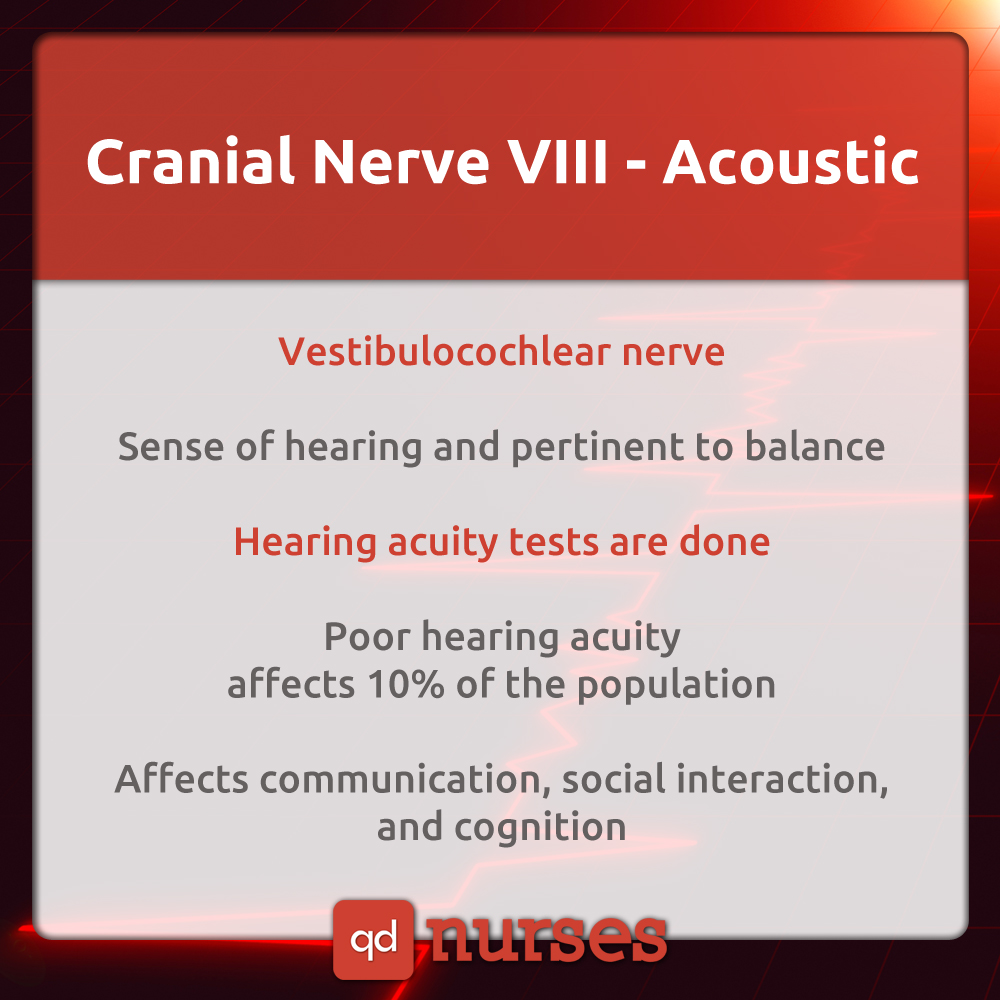
Cranial Nerve VIII – Acoustic
Vestibulocochlear nerve – sense of hearing and pertinent to balance
Hearing acuity tests are done for diagnostic testing and assessment.
Poor hearing acuity affects 10% of the population. It affects communication, social interaction, and cognition.
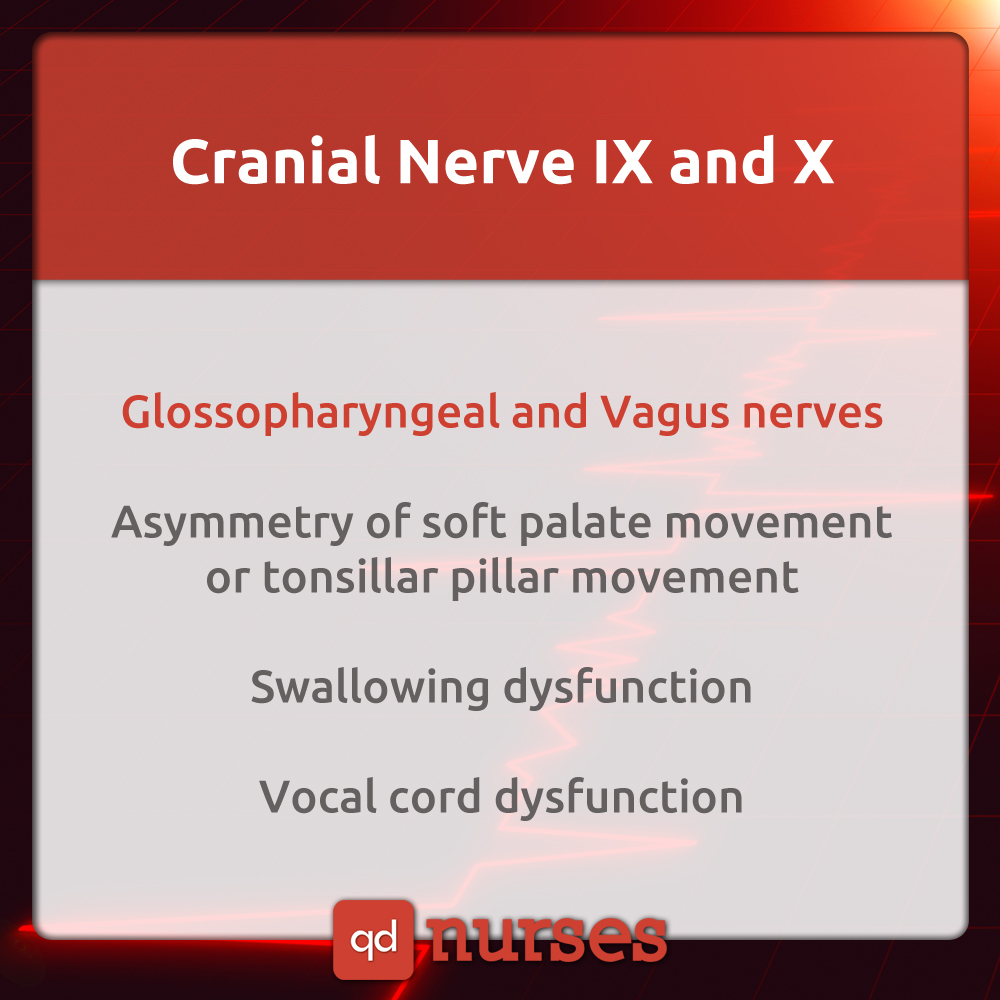
Cranial Nerve IX and X – Glossopharyngeal and Vagus Nerves
Observe for asymmetry of soft palate movement or tonsillar pillar movement.
Abnormal findings include swallowing dysfunction and vocal cord dysfunction.
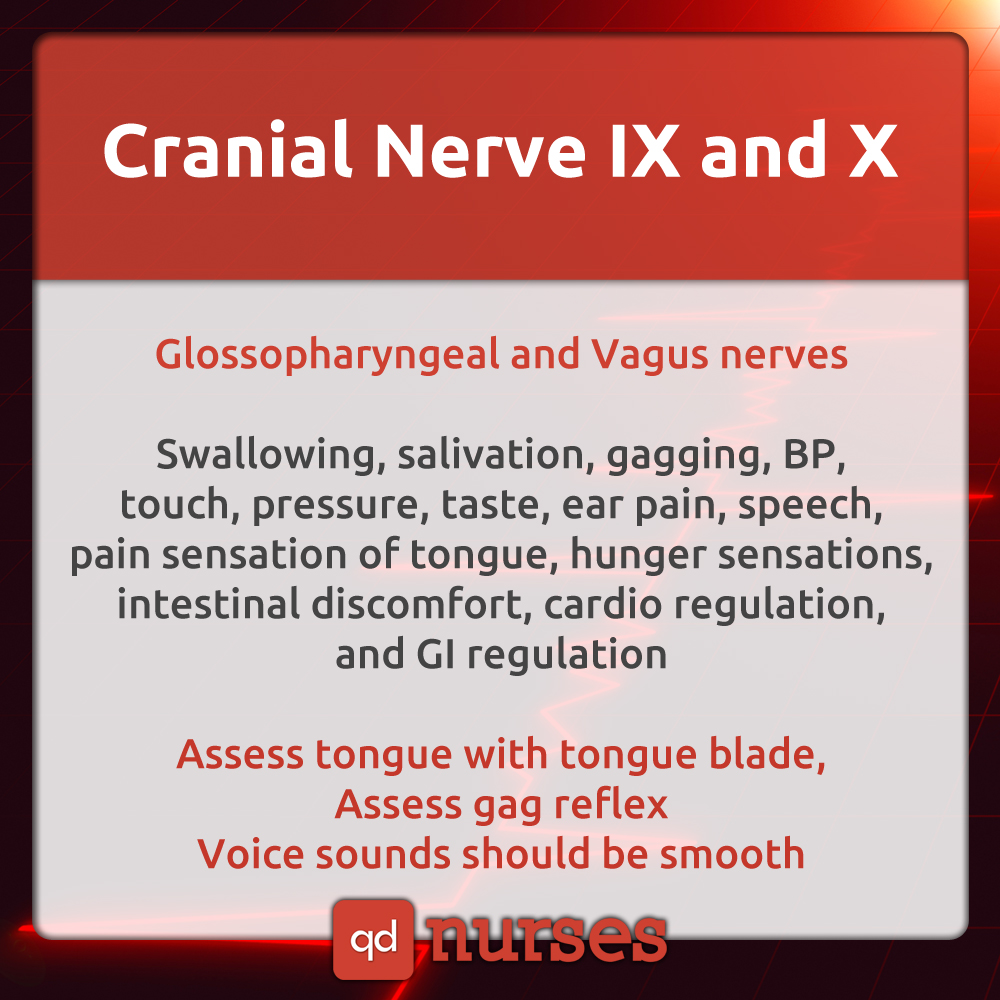
Cranial Nerve IX and X – Glossopharyngeal and Vagus nerves
Observe for:
Swallowing, salivation, gagging, BP, touch, pressure, taste, ear pain, speech, pain sensation of tongue, hunger sensations, intestinal discomfort, cardio regulation, and GI regulation.
Assess tongue with tongue blade.
Assess gag reflex.
Voice sounds should be smooth.
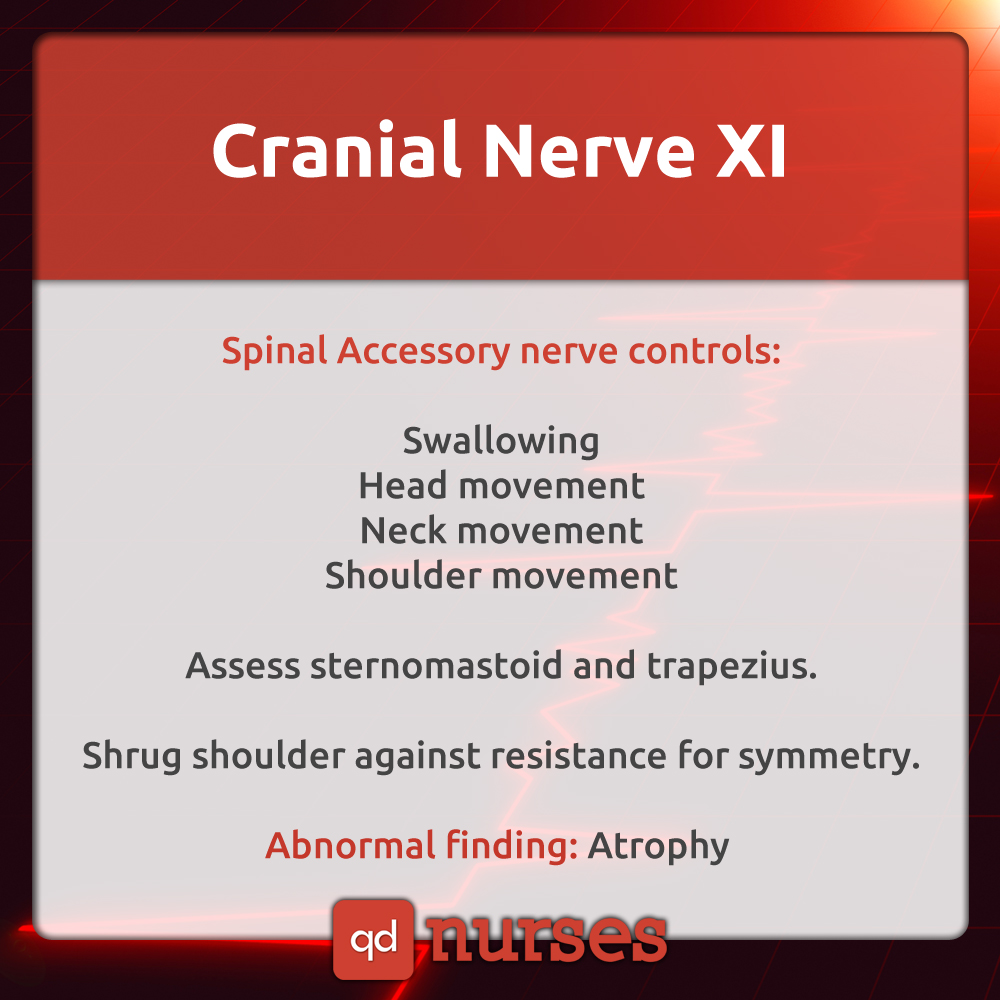
Cranial Nerve XI – Spinal Accessory Nerve
Spinal accessory nerve controls:
Swallowing
Head movement
Neck movement
Shoulder movement
Assess sternomastoid and trapezius. Shrug shoulder against resistance for symmetry.
Abnormal finding of spinal accessory nerve – atrophy.
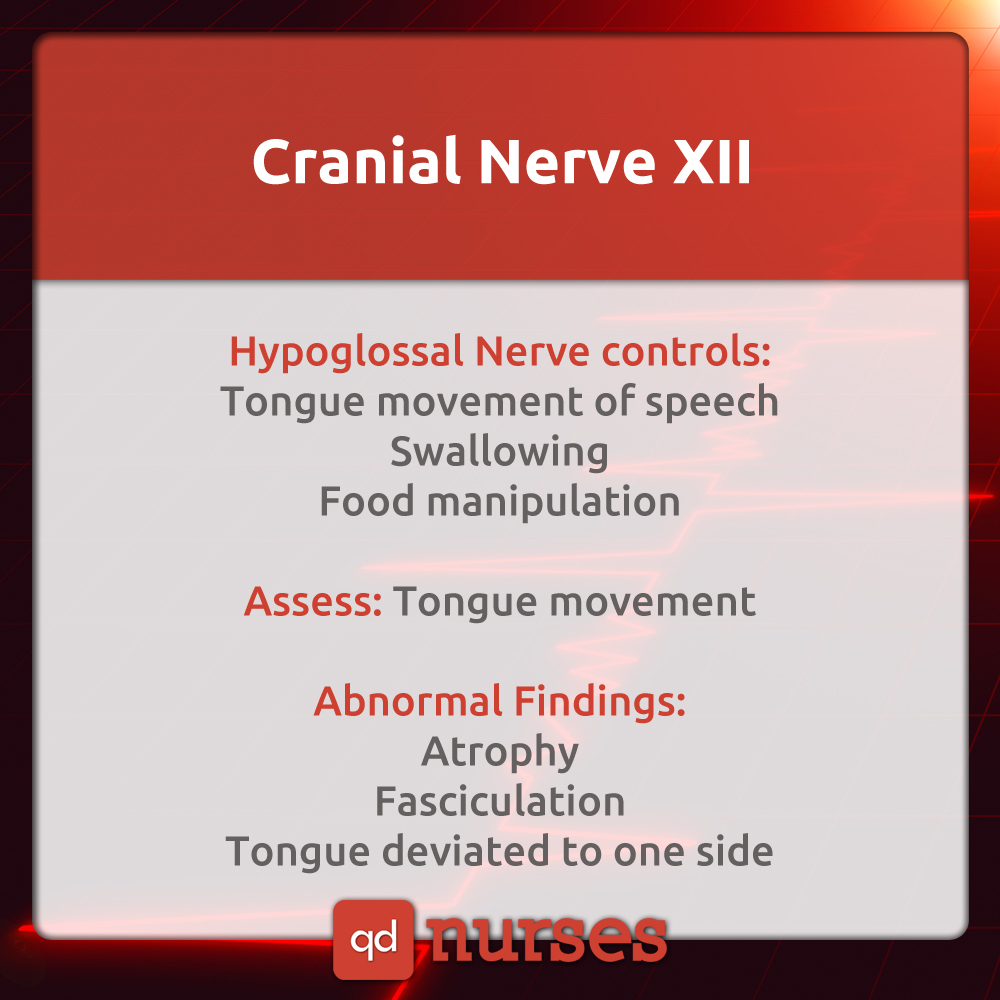
Cranial Nerve XII – Hypoglossal Nerve
Hypoglossal nerve controls:
Tongue movement of speech
Swallowing
Food manipulation
Assess for tongue movement
Abnormal findings:
Atrophy
Fasciculation
Tongue deviated to one side
